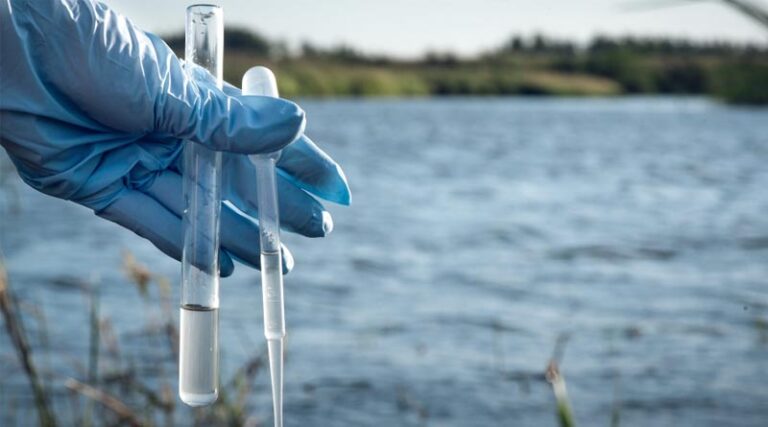
Clean Water Advocates Warn Pacific Seafood of Legal Action Over Warrenton Pollution
17 October 2025, Portland: Center for Food Safety (CFS) and Northwest Environmental Defense Center (NEDC) intend to sue a Pacific Bio Products facility over more than three years of ongoing pollution of the Columbia River at its Warrenton, Oregon facility. Pacific Bio Products – Warrenton is owned by seafood and aquaculture giant Pacific Seafood.
In a notice letter sent yesterday, the groups allege that the facility in question has been in repeat and ongoing violation of its Oregon Department of Environmental Quality permit’s pollution discharge, monitoring, and reporting requirements. Many of the alleged violations are egregious, including monthly average total residual chlorine discharges over 4,000% of the permit’s limits, and as recently as August 2025, a discharge of over 73,000% of the permit’s daily chlorine limit.
The Warrenton facility is used to manufacture bulk seafood products including fishmeal and shrimp and crab shell products that are used as (or in) pet food additives, livestock and aquaculture feed, and fish oils. Citizens and groups suing under the Clean Water Act are required to give sixty days’ notice before filing a lawsuit to enforce the public’s right to clean water. CFS and NEDC are representing themselves and are also represented by FarmSTAND and Kampmeier & Knutsen, PLLC.
Pacific Seafood and its subsidiaries are a leading market force in confined industrial fish farming operations, and have been polluting the Columbia River for years across multiple facilities, despite public claims about the sustainability of its practices. In July of this year, Center for Food Safety and Wild Fish Conservancy, in conjunction with Kampmeier & Knutsen, PLLC, filed a lawsuit against another Pacific Seafood-owned company for multiple violations of the Clean Water Act at three commercial netpen aquaculture facilities on the Columbia River raising rainbow trout.
“The Columbia River and Oregon Coast are already burdened by pollution and habitat destruction from multiple sources,” said Kingsly A. McConnell, Staff Attorney at Center for Food Safety. “Adding this kind of pollution only deepens the crisis for local communities and Tribes who rely on the river for their sustenance, culture, and livelihoods. When the government fails to enforce our environmental laws, the people have both the right and the responsibility to respond.”
“If Pacific Seafood is going to operate in the threatened Columbia River estuary, it is essential that it comply with each and every condition of its Clean Water Act permit,” said Jonah Sandford, Executive Director of the Northwest Environmental Defense Center. “These conditions are written to ensure that discharges from the facility don’t impact water quality, aquatic life, or nearby human populations. The hundreds of violations identified in the notice letter illustrate that the facility is causing real harm to this treasured ecosystem that must be stopped.”
“The business model of industrial aquaculture depends upon being able to pollute the environment without consequence,” said Holly Bainbridge, Senior Staff Attorney at FarmSTAND and counsel for the groups giving notice. “Megacorporations like Pacific Seafood want to use impunity to grow industrialized aquaculture in America. But citizen suits like the one we intend to bring here will hold them accountable to the people who rely on clean rivers.”
Industrial aquaculture facilities pose serious environmental risks and socioeconomic impacts to affected communities — especially traditional and indigenous fishing cultures. They can discharge large volumes of untreated waste into waterways, including excess nutrients, heavy metals, antibiotics, and chemicals. Chronic fish spills, caused by equipment failure, human error, or weather, are among the worst causes of harm. Escaped fish harm wild species like vulnerable salmon by competing for food and habitat, spreading viruses and disease, and inbreeding, thus reducing genetic diversity and resilience. The adverse ecological impacts of these facilities can thus lead to lasting effects on surrounding wildlife.
Also Read: New Holland Launches New Tractor Workmaster 105 with HVAC Cabin
📢 If You’re in Agriculture, Make Sure the Right People Hear Your Story.
From product launches to strategic announcements, Global Agriculture offers unmatched visibility across international agri-business markets. Connect with us at pr@global-agriculture.com to explore editorial and advertising opportunities that reach the right audience, worldwide.






